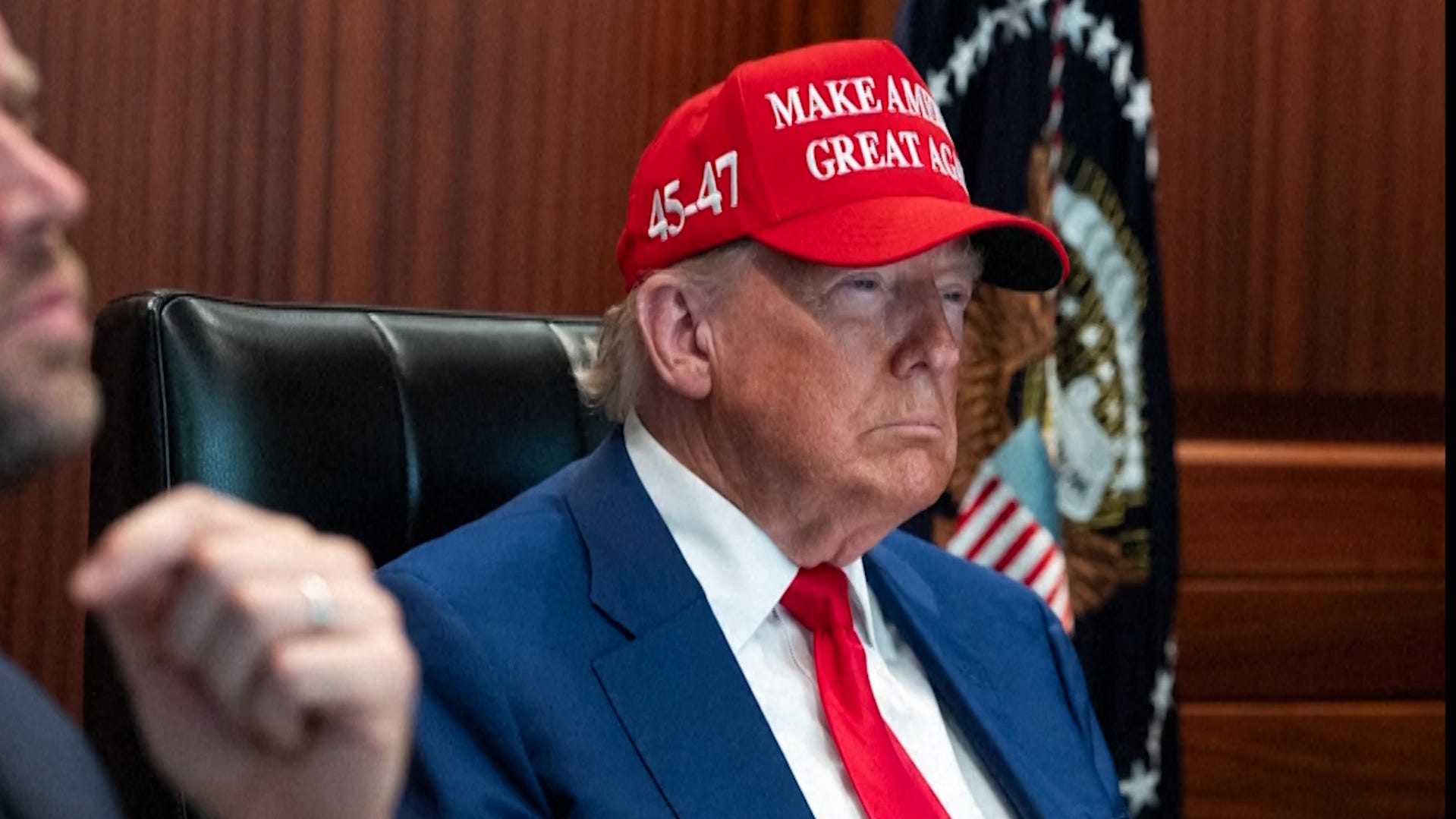
US strikes on Iran’s nuclear facilities met with mixed reactions
Lawmakers and world leaders are reacting to U.S. strikes on three of Iran’s nuclear facilities.
- The U.S. attack on Iranian nuclear sites is expected to cause market reactions, potentially increasing oil prices and strengthening the U.S. dollar.
- Increased oil prices could lead to higher inflation and reduced consumer confidence, potentially impacting interest rate cuts.
- Market uncertainty remains high due to limited information regarding the extent of damage and future developments in the conflict.
NEW YORK – A U.S. attack on Iranian nuclear sites on Saturday could lead to a knee-jerk reaction in global markets when they reopen, sending oil prices higher and triggering a rush to safety, investors said, as they assessed how the latest escalation of tensions would ripple through the global economy.
The reaction in Middle East stock markets, which trade on Sunday, suggested investors were assuming a benign outcome, even as Iran intensified its missile attacks on Israel in response to the sudden, deep U.S. involvement in the conflict.
U.S. President Donald Trump called the attack “a spectacular military success” in a televised address to the nation and said Iran’s “key nuclear enrichment facilities have been completely and totally obliterated”. He said the U.S. military could go after other targets in Iran if the country did not agree to peace.
Iran said it reserves all options to defend itself, and warned of “everlasting consequences”. Speaking in Istanbul, Iran’s Foreign Minister Abbas Araqchi said Tehran was weighing its options for retaliation and would consider diplomacy only after carrying out its response.
Investors said they expected U.S. involvement would cause a stock market selloff and a possible bid for the dollar and other safe-haven assets when major markets reopen, but also said much uncertainty remained.
“I think the markets are going to be initially alarmed, and I think oil will open higher,” said Mark Spindel, chief investment officer at Potomac River Capital.
“We don’t have any damage assessment and that will take some time. Even though he has described this as ‘done’, we’re engaged. What comes next?” Spindel said.
“I think the uncertainty is going to blanket the markets, as now Americans everywhere are going to be exposed. It’s going to raise uncertainty and volatility, particularly in oil,” he added.
One indicator of how markets will react in the coming week was the price of ether, the second-largest cryptocurrency and a gauge of retail investor sentiment.
Ether was down 8.5% on Sunday, taking losses since the first Israeli strikes on Iran on June 13 to 13%.
Most Gulf stock markets, however, seemed unconcerned by the early morning attacks, with the main indexes in Qatar, Saudi Arabia and Kuwait up slightly or flat. Israel’s Tel Aviv main index was at an all-time high.
How will oil prices and inflation be affected?
A key concern for markets would center around the potential impact of the developments in the Middle East on oil prices and thus on inflation. A rise in inflation could dampen consumer confidence and lessen the chance of near-term interest rate cuts.
Saul Kavonic, a senior energy analyst at equity research firm MST Marquee in Sydney, said Iran could respond by targeting American interests in the Middle East, including Gulf oil infrastructure in places such as Iraq or harassing ship passages through the Strait of Hormuz.
The Strait of Hormuz lies between Oman and Iran and is the primary export route for oil producers such as Saudi Arabia, the United Arab Emirates, Iraq and Kuwait.
“Much depends on how Iran responds in the coming hours and days, but this could set us on a path towards $100 oil if Iran respond as they have previously threatened to,” Kavonic said.
While global benchmark Brent crude futures have risen as much as 18% since June 10, hitting a near five-month high of $79.04 on Thursday, the S&P 500 has been little changed, following an initial drop when Israel launched its attacks on Iran on June 13.
Jamie Cox, managing partner at Harris Financial Group, said oil prices would likely spike before leveling off in a few days as the attacks could lead Iran to seek a peace deal with Israel and the United States.
“With this demonstration of force and total annihilation of its nuclear capabilities, they’ve lost all of their leverage and will likely hit the escape button to a peace deal,” Cox said.
Economists warn that a dramatic rise in oil prices could damage a global economy already strained by Trump’s tariffs.
Still, any pullback in equities might be fleeting, history suggests. During past eruptions of Middle East tensions, including the 2003 Iraq invasion and the 2019 attacks on Saudi oil facilities, stocks initially languished but soon recovered to trade higher in the months ahead.
On average, the S&P 500 slipped 0.3% in the three weeks following the start of conflict, but was 2.3% higher on average two months following the conflict, according to data from Wedbush Securities and CapIQ Pro.
In the most severe case, global oil prices jump to around $130 per barrel, driving U.S. inflation near 6% by the end of this year, Oxford said in the note.
All eyes on the dollar
An escalation in the conflict could have mixed implications for the U.S. dollar, which has tumbled this year amid worries over diminished U.S. exceptionalism.
In the event of U.S. direct engagement in the Iran-Israel war, the dollar could initially benefit from a safety bid, analysts said.
“Do we see a flight to safety? That would signal yields going lower and the dollar getting stronger,” said Steve Sosnick, chief market strategist at IBKR in Greenwich, Connecticut. “It’s hard to imagine stocks not reacting negatively and the question is how much.”
Jack McIntyre, portfolio manager for global fixed income at Brandywine Global Investment Management in Philadelphia, said it was uncertain whether U.S. Treasuries would rally after the U.S. attack, largely due to the market’s hypersensitivity to inflation.
“This could lead to regime change (which) ultimately could have a much bigger impact on the global economy if Iran shifts towards a more friendly, open economic regime,” said McIntyre.
On average, the S&P 500 slipped 0.3% in the three weeks following the start of conflict, but was 2.3% higher on average two months following the conflict, according to data from Wedbush Securities and CapIQ Pro.
What will this mean for the US dollar?
An escalation in the conflict could have mixed implications for the U.S. dollar, which has tumbled this year amid worries over diminished U.S. exceptionalism.
In the event of U.S. direct engagement in the Iran-Israel war, the dollar could initially benefit from a safety bid, analysts said.
“Do we see a flight to safety? That would signal yields going lower and the dollar getting stronger,” said Steve Sosnick, chief market strategist at IBKR in Greenwich, Connecticut. “It’s hard to imagine stocks not reacting negatively and the question is how much. It will depend on Iranian reaction and whether oil prices spike.”
(Reporting by Saqib Iqbal Ahmed, Lewis Krauskopf, Suzanne McGee and Saeed Azhar; Editing by Megan Davies, Diane Craft, Peter Henderson, Marguerita Choy and Jamie Freed)








